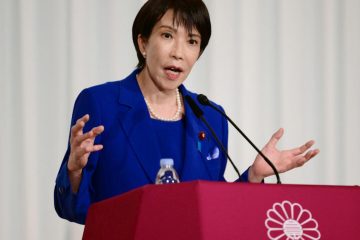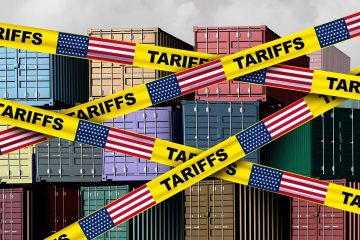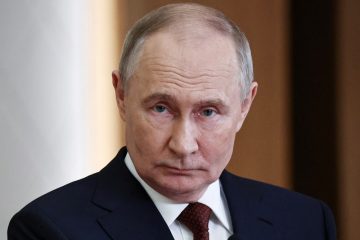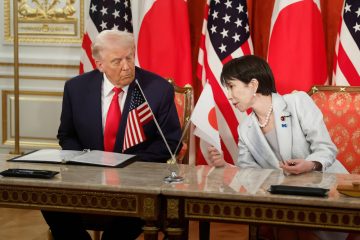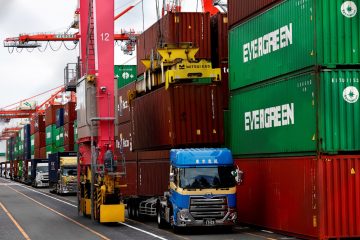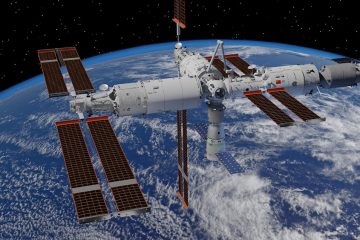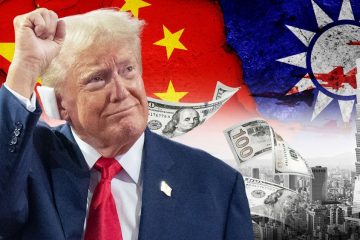Samsung Considers Moving US Supplies to India Amidst Trump’s Tariff Moves

Samsung stated that it is prepared to adapt with agility and has a well-thought-out strategy for diversification. As an alternative to Vietnam, Samsung’s huge manufacturing facility in India is considered as a viable option.
Samsung, the South Korean electronics giant, is closely watching the Trump administration’s trade negotiations and is ready to supply products to the US market from various manufacturing sites, including India, based on the results, a senior company official stated on Wednesday. Samsung acknowledged that “very high” uncertainty in America required its state of preparedness for various scenarios, asserting that it has a well-strategised diversification plan and would respond with flexibility. “The uncertainty in the US is currently very high, and because of that, we have been preparing against a number of different scenarios.” “We are ready to produce for the US from multiple factories, including India,” said Samsung COO of the MX division, Won-Joon Choi, to reporters.
The company has prepared for various scenarios and is ready regarding the diversification of factories for the product it will ship to the US, he said. “One of the things that we have prepared was to have diversification of our factories for the product we will ship to the US.” “Depending on the final decision by the Trump administration, we have already established a system in which we can shift from one to another to respond to the final decision more flexibly,” Choi said.
The company will move manufacturing to its India-based production facility for shipment to the US market from other global locations, a strategy to ensure stability in business and pricing, Choi said. The South Korean Chaebol, which operates multiple factories worldwide in countries such as China, Vietnam, and India, is poised to diversify its production for shipments to the US, its largest market. However, this will depend on the final decision by the Trump administration under its new policy, which has country-specific tariffs, he noted. Choi stated that the situation in the US is quite tenable, with high levels of uncertainty, and that Samsung was preparing for such scenarios.
In 2024, America Zone accounted for 39 percent of Samsung’s sales, with Europe, Asia, Africa, China, and South Korea following. Samsung operates a significant production facility in Vietnam, serving as its primary base for smartphone manufacturing. The Trump administration has declared a 20 percent tariff on exports from Vietnam to the US as part of the new trade deal announced on July 3.
India, home to a significant Samsung production facility for smartphones and other products, is viewed as an alternative to Vietnam. The Trump administration is altering US trade policy and focusing on reciprocity. Tariffs are being utilized to tackle trade imbalances and encourage domestic production. Earlier this week, President Donald Trump announced that the higher rates will take effect on August 1, 2025. A 25 per cent tariff on imports from South Korea and Japan has been imposed. Countries such as India are currently negotiating trade pacts with the US government. Choi stated that Samsung engaged in scenario planning to ensure that “we can secure our business stability and price stability for the consumers as well”.
In response to inquiries about China’s recent ban on rare earth material exports and its potential effects on Samsung’s global production, Choi stated: “For the near term, there have been no production disruptions so far”. He stated that Samsung has long been managing its global supply chain and is attempting to diversify it, without naming the country. “So, even for the rare earth metals, we have been trying to source from different companies, different countries. Although I am not able to name names, we have long been seeking diversification,” he said.
On Thursday, Samsung launched its latest Galaxy Z series of premium foldable smartphones: the Fold 7, Flip 7, and Flip 7 FE. In the smartphone market, especially in the premium market, we will continue to enhance the foldable form factor as it represents one of the most important form factors for us in the premium market, and we will continue to develop it,” he pointed out.
Regarding the use of Artificial Intelligence in phone systems, Choi stated, “we are very much nearing the tipping point.” Samsung has teamed up with Google to integrate its Gemini AI into its devices. Choi stated that the basic feature of Galaxy AI would not incur any charges. “Our policy is that for the basic AI features, they will remain free or remain at no additional cost.” “Now, having said that, about the premium AI experience that we are developing, both on our own and also in partnership with other companies, we are still in discussion about our policy about the premium AI experience,” he said. Samsung is integrating Galaxy AI and Gemini into its smartphones. It allows users the freedom to choose any one of them. “It is also open to add more such AI systems on its platform,” Choi added. “We are open to using any other competitive or most competitive agents.” “We are willing to integrate those into our Galaxy ecosystem,” he said.



